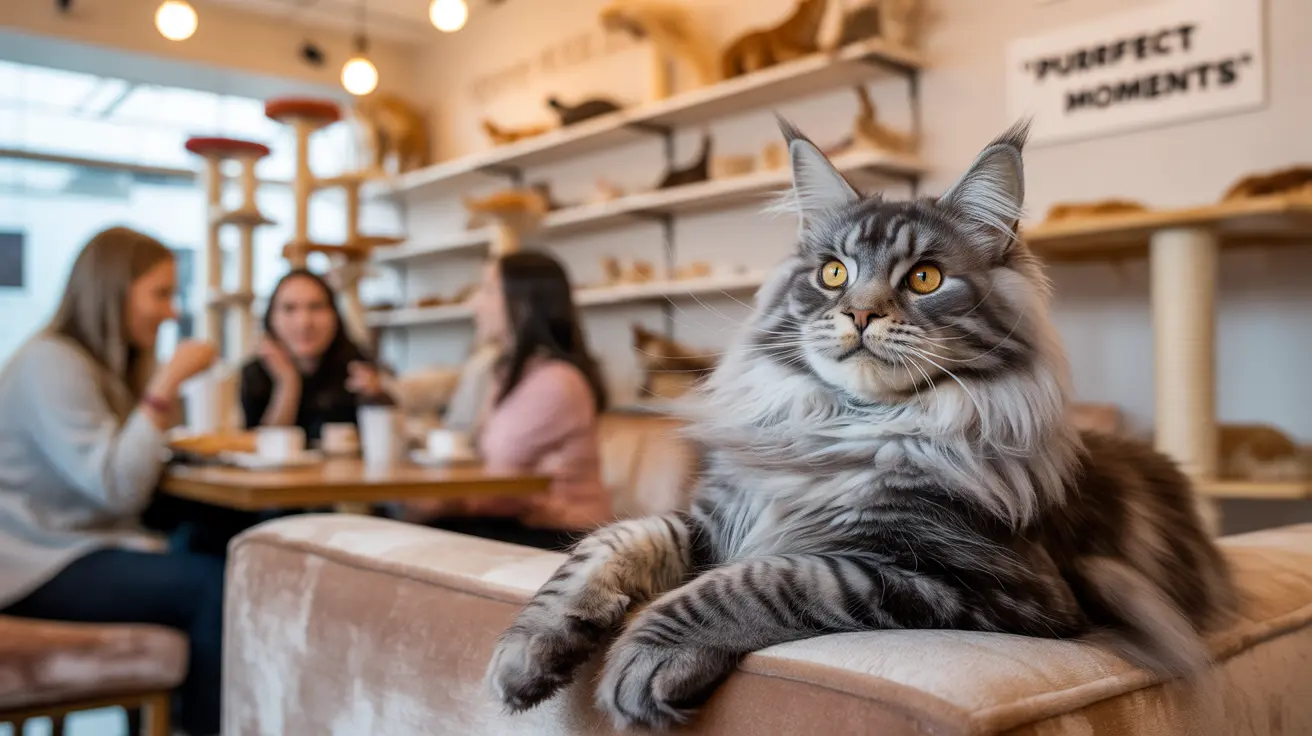The Rise of Cat Cafes and Their Purpose
Cat cafes originated in Taiwan in 1998 and quickly spread throughout Asia before gaining popularity in Western countries. While they began as novelty destinations, many modern cat cafes have evolved to serve a dual purpose: providing entertainment for visitors while functioning as adoption centers for homeless cats.
These spaces often partner with local shelters and rescue organizations, offering cats increased visibility and opportunities to find permanent homes. However, this noble intention must be balanced against the daily reality of life in a cafe environment.
Key Welfare Concerns in Cat Cafe Environments
Stress and Overstimulation
Cats are naturally independent creatures with varying social preferences. In cat cafes, they may face constant interaction with strangers, potentially leading to chronic stress. Signs of stress can include:
- Hiding or seeking elevated spaces
- Excessive grooming
- Changes in appetite
- Aggressive behavior
- Inappropriate elimination
Space and Resources
The physical environment of cat cafes can present challenges. Cats need adequate space for exercise, multiple litter boxes, scratching posts, and quiet areas for retreat. Some facilities may prioritize customer space over feline comfort, leading to cramped conditions.
Positive Aspects of Well-Run Cat Cafes
Adoption Success Stories
Many ethical cat cafes have impressive adoption rates, successfully connecting cats with loving homes. These facilities often provide comprehensive screening processes and education for potential adopters, ensuring better placement outcomes.
Socialization Benefits
For properly selected cats with social personalities, cat cafes can provide valuable interaction and enrichment. Well-managed facilities carefully monitor their cats' behavior and remove any showing signs of stress from public areas.
Best Practices for Ethical Cat Cafes
Responsible cat cafes implement several key practices to ensure feline welfare:
- Limited operating hours to ensure adequate rest periods
- Rotation systems for cat participation
- Regular veterinary care and health monitoring
- Strict hygiene protocols
- Clear rules for visitor behavior
- Designated "cat-only" spaces where animals can retreat
Frequently Asked Questions
Are cat cafes ethical for the cats living there, and what are the main welfare concerns?
Cat cafes can be ethical when properly managed with strict welfare protocols. Main concerns include overcrowding, stress from constant human interaction, and inadequate rest periods. Ethical facilities address these issues through proper space management, limited operating hours, and rotation systems.
Do cat cafes actually help cats get adopted, or do most end up as permanent residents?
Well-run cat cafes often have successful adoption programs, with many cats finding permanent homes. However, success rates vary by facility. The best cafes maintain strong relationships with local shelters and have clear adoption protocols.
What signs should I look for to make sure a cat cafe takes good care of its animals?
Look for clean facilities, multiple rest areas for cats, clear rules for visitors, healthy-looking cats, and proper spacing between litter boxes, food, and water stations. Staff should actively monitor cat behavior and enforce interaction guidelines.
How can cat cafes reduce stress for the cats while still allowing visitors to interact with them?
Effective stress reduction methods include providing elevated spaces, quiet rooms, limited operating hours, and rotation systems. Staff should also educate visitors about proper interaction techniques and respect cats' boundaries.
Are there regulations or standards cat cafes must follow to ensure they are ethical and humane?
Regulations vary by location, but most cat cafes must comply with local health department and animal welfare regulations. Some regions have specific guidelines for cat cafes, while others operate under general animal facility standards.
Conclusion
While cat cafes can provide valuable adoption opportunities and positive experiences for both cats and humans, their ethical status depends entirely on management practices and welfare priorities. Potential visitors should research facilities thoroughly and support those demonstrating clear commitment to feline welfare above commercial interests.






